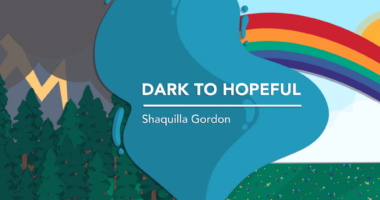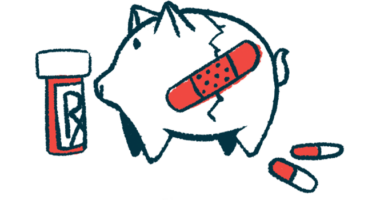Reflecting on the odds of winning my very specific lottery
This Rare Disease Day, I'm at peace with the ways I hit the PNH jackpot

What do you think of when you hear the words “one in a million”?
Do you think of the chances of winning the lottery and how those odds seem almost impossible, making you sigh with disappointment and think winning could never happen for you? Yet do you still buy a Powerball ticket out of a slight hope that maybe, just maybe, it could happen? Then do you watch them call the winning numbers and, when they don’t match yours, throw the ticket aside and take it all as confirmation that your original thoughts were right and that you can’t win?
Now, imagine that one day, your numbers did match and you are that one-in-a-million person — but it isn’t for the lottery; it’s for something you’d never expected and would’ve rejected were it possible. That day happened to me when I was diagnosed with paroxysmal nocturnal hemoglobinuria (PNH).
Making peace with my rarity
Tomorrow is Rare Disease Day, when the community comes together to celebrate our strength and create awareness for all our journeys with these chronic illnesses. This year is even more special because our community’s holiday arrives on Feb. 29, which only exists in a leap year and makes this Rare Disease Day even more rare.
Each year since my diagnosis, I reflect the most on the statistics behind my PNH: only one in a million, or a touch more, get this disease.
It’s strangely beautiful how my interpretation of my rareness has progressed over time. I used to view it as a burden following me around, like a big red arrow over my head pointing down and reminding me how unlucky I was to acquire such a rare disease. I eventually lost the arrow imagery and accepted an “it is what it is” attitude. And now, I wear that one-in-a-million title with pride.
That statistic has put me through battles that, believe me, I wouldn’t have chosen. But seeing the beauty in something dark has been a life lesson from PNH. It’s as if I won a different type of lottery.
I won by having opportunities I never imagined for myself. For instance, I speak to pharmaceutical companies about what it’s like to live with PNH so they can use the data to improve treatment options. I’ve also been able to write a weekly column that sheds light on my journey, which I hope helps my readers better understand the disease. From the small opportunities to the big ones, regardless of size or impact, I’m grateful to be able to participate.
I won the lottery in being forced to face my biggest fear, needles, and now I feel unstoppable. I used to cry instantly at the thought of a blood draw or getting an IV or vaccine; in fact, I had crippling anxiety about approaching doctor’s appointments that could lead to any pokes. At first, it felt like a twisted form of torture when I was told that I needed an IV every two weeks for my Soliris (eculizumab) medicine, but there’s no other way I would’ve overcome what was holding me back if it didn’t play out that way.
And finally, I won the lottery by truly getting to know myself. I’ve become so in tune with my body that I’m able to pinpoint what I’m feeling and the way to communicate that with my doctors. I’ve learned how to listen to my body’s needs, appreciate my abilities when I feel good, and function according to my own expectations, not society’s.
So in a way, I guess my being one in a million did win me the lottery. I wouldn’t be telling the truth, however, if I didn’t say I would much rather have all that money!
Happy Rare Disease Day, everyone!
Note: PNH News is strictly a news and information website about the disease. It does not provide medical advice, diagnosis, or treatment. This content is not intended to be a substitute for professional medical advice, diagnosis, or treatment. Always seek the advice of your physician or other qualified health provider with any questions you may have regarding a medical condition. Never disregard professional medical advice or delay in seeking it because of something you have read on this website. The opinions expressed in this column are not those of PNH News or its parent company, Bionews, and are intended to spark discussion about issues pertaining to paroxysmal nocturnal hemoglobinuria.







